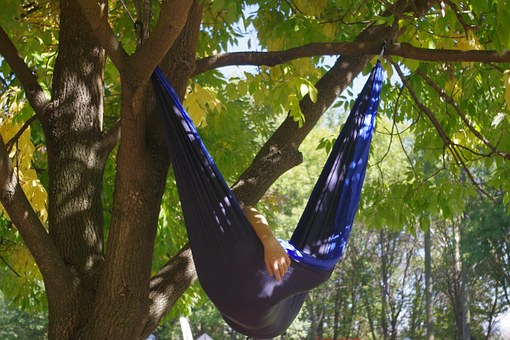To nap or not to nap: that is the question.
Some people swear by the power of naps, actually calling them “power naps.” They’re powerful, they say, because they feel recharged, refreshed, and rejuvenated after they wake up.
Others, not so much. They insist that if you’re struggling through your day after a night of sleeplessness, it’s better to plod on through. Better to go to bed early and try to catch up that way. A nap will mess up your ability to sleep at night, they say.
Should napping be considered a sleep skill?
Is there a middle ground?
There is.
Nap for 20-30 minutes and no more. That’s it. It might not sound like much, but over a dozen studies report it can help. Companies like Google, United Airlines, Ben & Jerry’s, and Nike have pro-napping policies. Some corporate campuses actually have nap rooms for employees.
Science backs these policies. It’s therefore worthwhile to include in your sleep skill toolbox. A survey of studies found after a short period of sleep inertia, test subjects commonly reported decreased sleepiness and increased sleep-related physical performance. Altogether, businesses lose billions of dollars in productivity every year from the symptoms of sleeplessness, estimated to be as much as $63.2 billion per year. Sleepiness affects coordination, ability to concentrate, decision-making, and makes it more likely that people get burned out with their jobs.
Try it out for yourself. Experiment.
If you’re tired and are having a hard time shutting off your mind to rest, try listening to some relaxing music. Shut off notifications, put in earbuds, and turn a music app on your smartphone. You want the music to play softly unless you’re trying to block out some other distracting background noise. Set a timer to wake up. You don’t want to sleep for too long or else you’ll confuse your body and its rhythms.
Alternately, try dozing off while listening to a recorded lecture. Don’t expect to retain any of the lecture material, however.
Imagine yourself in some place you find relaxing. On the beach. In a hammock in the mountains. Sleeping on the deck of a sailboat. On the grass in the park.
One of the most beautiful places to fall asleep is in nature, under a blanket of stars.
Try patterned muscle relaxation. Start with one leg. Then the other. Then one arm. Then the other. Imagine yourself sinking into the mattress.

Give this kind of a nap a couple of tries. When you wake, note how you feel afterward. If you consistently feel good or great, you’ve got a new tool to add to your arsenal of well-being.
If you benefit from them, it pays to get serious about them. Get the best napping equipment you can find, especially if you have to sleep in public. A good napping pillow will softly support your head, allowing you to relax while sitting upright in a chair. The best napping pillow will shut out some sound, allow you to breathe easily, give you darkness, and support your head. It will discourage people from waking you up and interrupting your recharging session.
I’m not someone who consistently gains benefits from napping, not even when traveling. When I’m changing my sleep schedule, alternating between being awake days and nights, I need a couple of hours of sleep to remain sharp. A power nap does nothing for me.
I won’t deny that power naps help some people, however. Lots of people swear by their effectiveness.
If you don’t feel good or great after your tests, as an alternative, try going outside for a walk. Breathing fresh air and getting out in nature can also be energizing. It doesn’t have to be a power walk. Just a regular walk will do. Bodies are highly individual. Learning what works well for yours is the best way to be happy.
We’ve been named one of the top 25 sleep blogs on the Internet by Feedspot!
Further reading:
Taking a walk before going to bed.
What are the “Walls of Sleep?”
The underrated power of distraction
James Cobb, RN, MSN, is an emergency department nurse and the founder of the Dream Recovery System. His goal is to provide his readers with simple, actionable ways to improve their health and maximize their quality of life.
The DRS uses affiliate links in some banner ads. If you click on a link and make a purchase, we may receive a small commission. This has no effect on our opinions.
